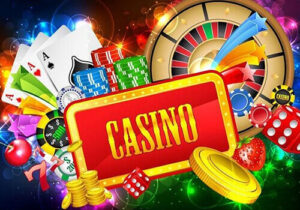
Know the rules
Compulsive gambling is a serious mental condition that can have lasting repercussions in all aspects of one’s life, including relationships and finances. People living with compulsive gambling often turn to gambling for excitement or pleasure and hide their behavior by spending money they don’t have or stealing it to support their addiction. It is crucial that we learn of this condition early and seek treatment if any one we know displays these symptoms.
Recognizing a person’s triggers can help them break free of gambling addiction. These may include stressful situations or specific thoughts/emotions that induce impulse gambling. If stress is the source, consider healthy coping methods like meditation or exercise as alternatives; if sports events are the source, take breaks during games to avoid watching or block betting apps/websites altogether.
Avoid high-risk situations associated with gambling, such as visiting gambling establishments or socializing with those who gamble. Stay occupied and divert your attention away from gambling by exercising regularly, socializing with family and friends or finding a hobby.
Limit your bets
Gambling apps and gambling can be thrilling and enjoyable experiences, but it is important to limit how much you bet. Gambling stimulates the brain’s reward system in a similar fashion to drugs and alcohol, which may lead to compulsive behavior such as spending money that you need for bills or obligations on gambling instead. You could also resort to concealment or theft and fraud as funding mechanisms for an addiction.
Take a break
As well as seeking treatment, taking a break may include avoiding high-risk situations that trigger your gambling addiction. When feeling the urge to gamble, call a friend, meet with family for coffee or practice deep breathing techniques like mindfulness exercises – anything to reduce temptation! You should also avoid casinos or any betting establishments; further restrict access to money by cutting credit cards up and giving someone else charge of your finances or uninstalling betting apps from your phone.
Psychotherapy techniques such as cognitive-behavioral therapy and family and marital counseling may also help combat your gambling addiction, such as cognitive-behavioral therapy and marital counseling. These therapies can help change unhealthy emotions and thoughts while teaching lasting coping skills that will last a lifetime. Furthermore, these therapies may assist you in solving financial, work, and relationship problems caused by gambling habits – as well as encourage treatment of co-occurring mental health conditions; teach healthy stress management techniques while strengthening social support systems – in many ways they do this too.
Avoid high-risk situations
Gambling addiction can create numerous issues in both financial terms and relationships. Furthermore, it poses a risk of depression and anxiety in susceptible people; so it is crucial that anyone suspecting themselves or another as having a gambling problem recognize the signs early and seek professional assistance should they suspect that this might be their issue.
If you have an addiction to gambling, it’s essential that you avoid high-risk situations that could trigger it – including social events that involve betting, sports games or online gambling sites. Furthermore, it’s vital that you discover your triggers and devise healthy methods of managing them.
Reduce access to money by blocking gambling apps and websites, clearing away auto-fill information on your computer, or having a trusted friend manage it for you. Find alternative activities, like spending time with family, reading a book, exercising or volunteering; it may also be beneficial to find support like Self Help Group for Families of Problem Gamblers (SHPG) or Gamblers Anonymous as well as seek treatment for any underlying issues which contribute to gambling addiction.
Find alternative activities
Gambling addiction is a serious matter with serious financial and personal repercussions, making early recognition and intervention of its warning signs essential. Many individuals can recover from gambling addiction.
One effective strategy to counter compulsive gambling behaviors is finding alternative activities. This may involve renewing old hobbies, engaging in new ones, volunteering or attending classes – studies have demonstrated how these activities can enhance mental health while decreasing relapse risk.
Gamblers tend to engage in gambling for the rush of excitement it provides them, which may explain their involvement. By experiencing something new such as taking cooking classes or visiting different places or learning sports, these individuals could possibly stay away from gambling behavior altogether.
Establish social support. This could include seeking help from close family or friends who understand your struggle, or joining a support group such as Gamblers Anonymous. Building up such an arsenal can help keep you accountable and avoid risky situations.

